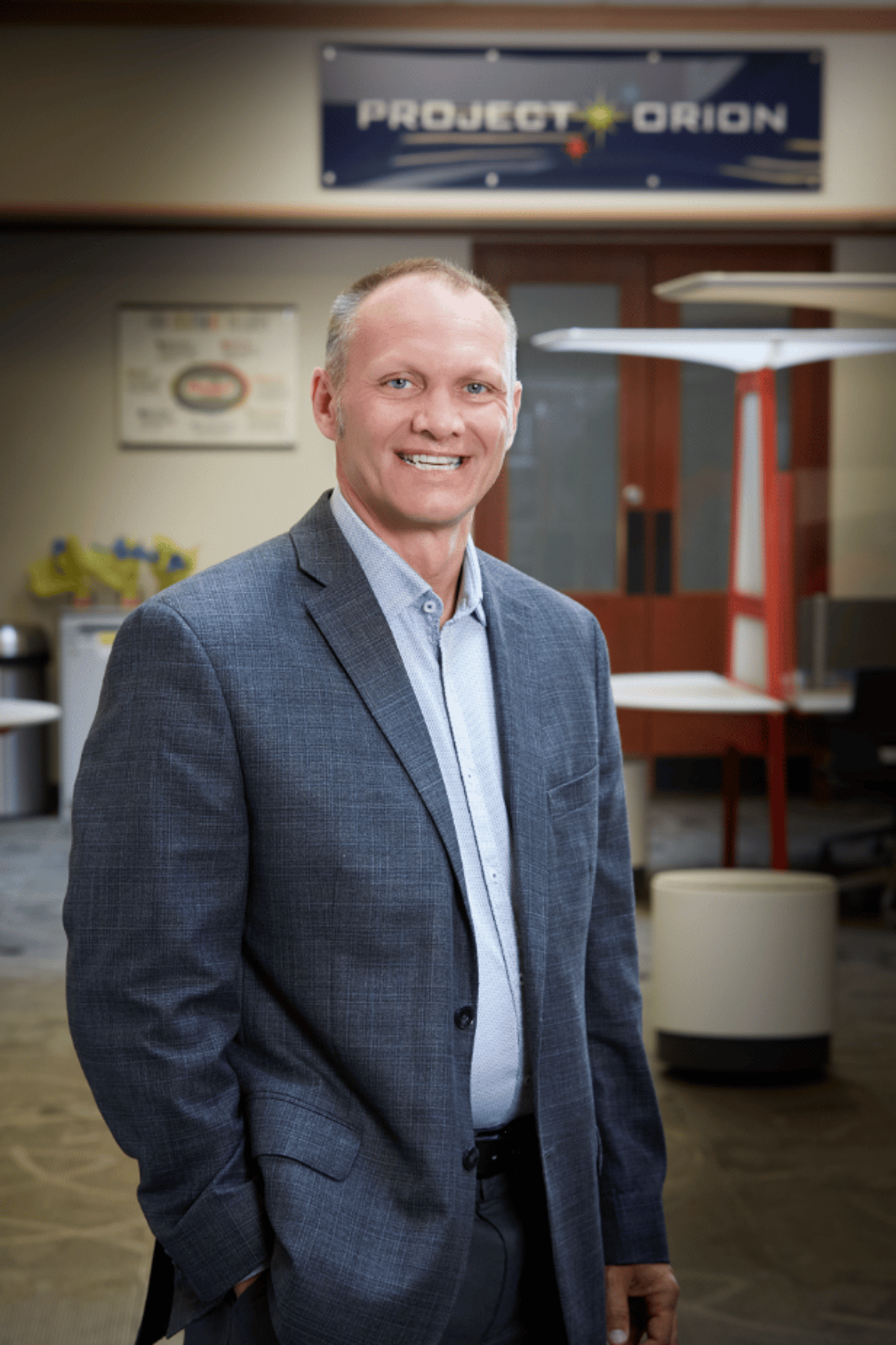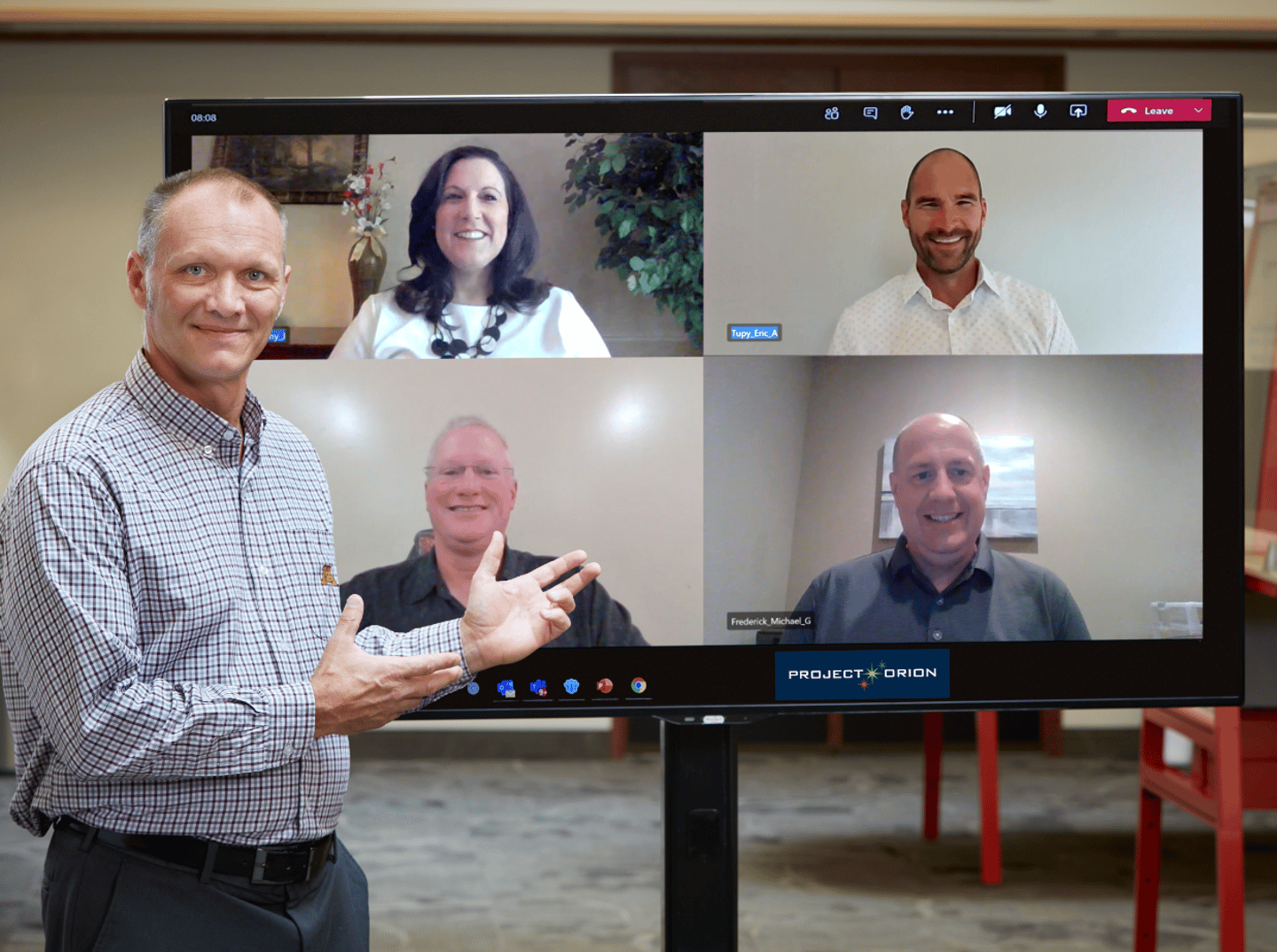CGT CIO of the Year 2020: Mark Vaupel, Hormel Foods
You can lead a horse to water but you can’t make it drink. That’s true. It’s just that pandemics have a way of making for some very motivated horses.
In giving the CGT CIO of the Year Award — bestowed upon the most senior tech leader who has made the greatest demonstrable business impact on his or her organization through the implementation and use of technology — it’s entirely fitting this year’s winner would be someone who effected great change through digital transformation. In 2020, we’ve watched the CG industry unceasingly serve its customers in large part thanks to the digital efforts made prior to the start of the pandemic.
Of course, Mark Vaupel, Hormel Foods VP of IT services, never expected the company’s sweeping Project Orion enterprise-wide transformation effort to be executed during a time of such disruption. An initiative updating and streamlining multiple core business processes and IT systems across business units and subsidiaries, with support from KPMG, it shifts the company's IT systems strategy from on-premise “best of breed” to an Oracle integrated cloud-based suite.
At its core, Project Orion is about driving process efficiencies and better decision making from all angles at Hormel Foods. It’s an ambitious, transformative plan, saddled with so much change management that these efforts alone would have qualified Vaupel as a solid contender for this year’s award during our old normal.
But as we move forward in this unprecedented landscape, there couldn’t be a more fitting 2020 winner than someone who undertook the Herculean effort of shifting legacy operations to digital technologies — and then kept on going even when much of the world was put on pause.
10,000 Lakes, Born and Bred
A nearly 25-year veteran of Hormel Foods, Vaupel joined the company with a finance background, but his history with the company goes back, literally, as far as he can remember. The Minnesota native grew up on a family farm in the southern part of the Bread and Butter State, with some of his earliest recollections of riding along in his father’s pickup truck to deliver hogs to the Austin, Minn., Hormel Foods plant.
After attending college at the University of Minnesota and spending several years at Andersen Consulting and then Cargill, Vaupel took an IT role at Hormel Foods and never looked back. He cites his time at Andersen as providing the necessary business foundation for Hormel Foods, supplying a holistic view of what’s required for a business to be successful.
“I often say that Hormel Foods is a food company — it's not a technology company,” notes Vaupel. “Some of those experiences at Andersen became the backdrop of knowledge to deliver technology solutions that can help the business work more efficiently and effectively,” he says. “Here at Hormel, we deliver technology so that every facet of our business can help better, innovate, manufacture, distribute, sell and market the best food products in the world.”
As such, Vaupel’s tech priorities are designed to help Hormel Foods achieve its key results and global growth strategies to ensure “we're all singing off the same sheet of music,” if you will.
This we-all-row-the-boat mentality is aided by a corporate culture that emphasizes challenging oneself in an atmosphere where results matter. Hormel Foods team members are expected to be strategic partners who build bridges across the enterprise by speaking up and proactively creating solutions that achieve company goals.
Simply put, it is never tech for tech’s sake at Hormel Foods, says Vaupel, and approaching Project Orion with that mentality proved to be instrumental in its success.
Did You Know?
Hormel Foods has welcomed a "collection of creative companies and people" into its family of brands including:
- Applegate, acquired in 2015
- Justin’s, LLC, acquired in 2016
- Cidade do Sol, acquired in 2017
- Columbus Manufacturing, acquired in 2017
- Fontanini Italian Meats, acquired in 2017
- Sadler’s Smokehouse, acquired in 2020
On-Premise No Longer
Project Orion is an all-encompassing mission, spanning human resources, payroll, finance, supply chain and enterprise performance management. As such, Vaupel and team developed an explicit program-management process and timeline spelling out various deployments and responsibilities.
After going live on New Year’s Day 2020 with human resources and payroll, the next deployment was put on the books for April. Then, of course, the world went upside-down in March.
Suddenly, the team that had been working shoulder-to-shoulder was now scattered throughout the globe. For many Hormel Foods team members across the enterprise, this involved transitioning from almost always working from an office prior to COVID-19, to working remotely from home. Shifting to remote was admittedly a big adjustment for everyone, including Vaupel.
Telework was a new experience for him, he concedes. Hormel Foods occupies a vast campus with multiple buildings, and prior to COVID-19, Vaupel would drive over to attend meetings in different buildings rather than dial-in for a conference call or set up a Zoom. It was certainly a far cry from today’s Zoom happy hours and Brady Bunch-style team meetings.
- Pictured (clockwise from top left):
- Amy Morrison, Director Infrastructure
- Eric Tupy, Director IT Strategy and Enterprise Architecture
- Michael Frederick, Director Application Services (also playing the role as Project Orion Program Manager)
- Stacy Jech, Director Security and IT Operations
*Photo courtesy of Hormel Foods
At home this spring, Vaupel and his wife, Annemarie, a Hormel Foods marketing director, navigated the new normal of telework, conducting meetings screen-to-screen instead of face-to-face and staying in touch with their adult sons via video chat. (Let it be known the Vaupels are a Microsoft Teams family as is Hormel Foods.)
But the Vaupels — and the rest of Hormel Foods — quickly adapted, and much of the digital collaboration foundation the IT team had implemented was readily put to use. In citing the horse analogy used at the start of this article, Vaupel notes that some of the digital capabilities across the broader Hormel Foods team evolved a good five years in just three months.
For Project Orion, the planned in-house intensive training was instead redesigned as a remote experience — the only real solution if the team wished to stay on schedule. While they built in an extra month to develop added communication and ensure employees would receive the appropriate amount of training, putting the brakes on Project Orion was never an option.
CGT CIOs Through the Years
“We never even really considered it,” says Vaupel. “We looked at it and said we can adapt to the environment that we're in. It’s such a critical and important project to our company's success.”
Thanks to these efforts and agility, Project Orion was able to progress seamlessly. In keeping with the spirit of the consumer goods industry, Vaupel quickly and readily cites his team, as well as Hormel Foods executive VP and CFO Jim Sheehan, as key drivers in this achievement. While Vaupel may have led the venture, the hard work from his team, the Orion cross-functional project team, the broad enterprise support, the partnership with Oracle, and the guidance, direction and insight from KPMG, made it a success.
“Jim was the one who challenged me and the Project Orion team to ‘be bold and think differently’ as we started this transformation initiative,” he says. “This set the stage for the strategy and direction that we are executing against with Project Orion from a technology and business process perspective.”
Hormel Foods also took it upon itself to identify a team of employees who were given formal change management responsibilities — another new initiative for the company. Helping employees understand why these dramatic changes were being made and what the impact would be on them specifically, as well as providing the necessary hands-on training, was equally crucial in bringing it to fruition.
Project Orion is enabling Hormel Foods team members to refocus their energy away from manual processes to look at more strategic-related capabilities and insight to provide to the business, providing a basis for improved data analytics and driving better decision making. It’s also serving as a foundation for strategic capabilities and emerging technologies that will become critical to the company’s future success.
“Project Orion is really driven around [utilizing] capabilities such as process automation, artificial intelligence, machine learning and analytics,” explains Vaupel, “to optimize all of our business processes in order to deliver the best, safest food products in the world.”
- CIO Shares
What's the first thing you do every morning?
The first thing I do every morning when I get up is make coffee.
What's the last thing you do before you go to sleep?
Spend at least half an hour reading.
Which piece of technology helps you stay productive?
Video calls.
What are you reading right now?
Robin DiAngelo’s White Fragility and Fyodor Dostoevsky’s The Brothers Karamazov.
What did you miss most during stay-at-home orders this spring?
1. Going to restaurants with my wife. 2. Cooking and hosting dinner parties at our home.




